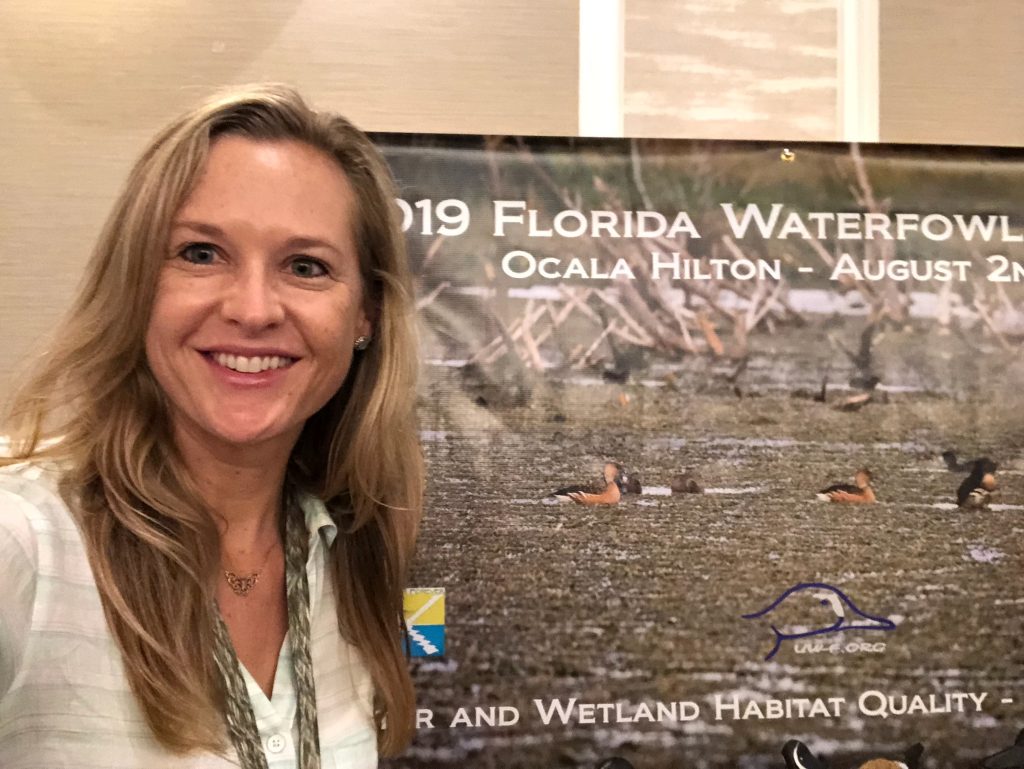What do bird lovers and duck hunters have in common? They, like many others, are opposed to the Roads to Ruin toll roads that, if built, would have significant implications for wildlife habitat, including countless bird species.
The United Waterfowlers- Florida (UW-F) recently became a member of the No Roads to Ruin coalition, which now includes 67 organizations representing diverse environmental, recreational, community and business interests around the state. The mission of UW-F is to improve duck hunting in Florida and focuses on three pillars: conservation, access, and advocacy.
On January 3rd, I enthusiastically accepted an invitation by the president to speak about the coalition and the Roads to Ruin at their annual meeting. Held at the beautifully restored Fellsmere Estates Building in Fellsmere, we engaged in thoughtful conversation over sweet tea, corn fritters, and collards.

The Roads to Ruin will have a direct negative impact on waterfowl habitat in several significant ways. Destruction of natural areas, especially coastal areas and freshwater lakes, will reduce available habitat. Increased growth and development, overall, will lead to increased pollution into water bodies like lakes and rivers. Increased nutrients (like fertilizer and septic tank leakage) fuel nuisance vegetation, often requiring the use of aquatic herbicide, which is damaging and costly. Elimination of existing conservation areas or conversion of natural or agricultural areas will decrease access to productive hunting areas and increase conflict between hunters and nearby homeowners. Finally, the legacy of hunting and other recreation in Florida will suffer from poorer conditions and decreased access. Rural areas may also lose the revenue from sportsmen/women that live locally or travel distances to hunt in their communities.
As a conservationist, I have made a concerted effort in recent years to better understand the needs of and the role that the hunting and angling communities play in conservation. In August, I attended the Florida Waterfowl Summit in Ocala. I was impressed by the focus on water quality issues and the understanding of the importance of conservation and good environmental policy. Besides more camo attire on the participants, there was little that distinguished this meeting from an academic conference. Make no mistake – these men and women understand that without habitat and clean water, they can’t enjoy what they love to do. And there is little chance that their children and grandchildren will have those opportunities without the protection of quality habitat.
That broader understanding and conservation focus led me to recruit UW-F as a NRTR coalition member. Attending the toll roads task force meetings, it was apparent that the voice of the sportsmen community was missing and needs to be heard. The UW-F website asks its members to “turn on the heat” with letters, emails, and calls to politicians. As they added “opposing the Roads to Ruin” to their annual statewide priorities, I asked them to be vocal and engaged members of the coalition and to share their important voice at task force meetings. I can’t think of a hotter topic than this one for hunters, anglers, bird watchers, hikers, or anyone that appreciates natural Florida. If an organization you represent would like to join the coalition, provide comments, or write an op-ed, please contact me. Let’s keep the heat on and demand an end to the Roads to Ruin!

